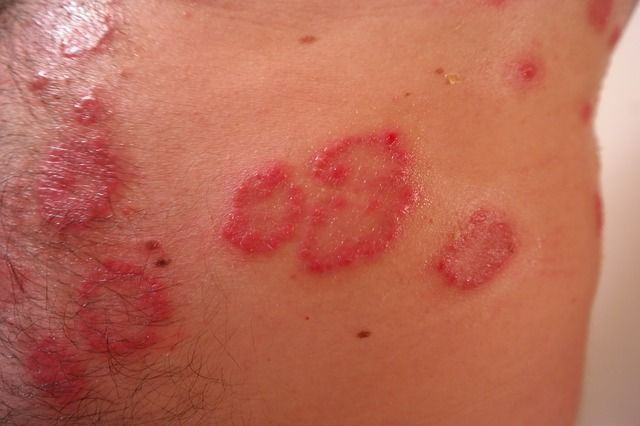Early Signs Of Shingles: Symptoms And Treatment Of The Chickenpox-Related Virus; Who's At Risk

Think that you’ve escaped chickenpox after getting the virus just once as a kid? Brace yourself: shingles could be coming.
Shingles is caused by the same pathogen responsible for chickenpox, varicella zoster virus (VSV), a cousin of the viruses responsible for both types of herpes. Medical Daily reported that the virus hides away in our nerve cells for years and can emerge years later as shingles for only broadly understood reasons — such as a weakened immune system.
It’s important to know the early signs of shingles, especially now that winter is coming. It can be a painful condition with severe complications.
Healthline reported that an estimated half of all shingles cases occur in people aged 60 years and older. People with HIV, those undergoing cancer treatments, organ transplant recipients, and anyone experiencing a lot of stress are also more prone to developing shingles.
Pain around the abdominal area is usually the first symptom of shingles, according to Mayo Clinic. Some people experience this without ever developing the infamous rash. The virus can cause numbness, itching, tingling, and burning pain in this area, which can worsen as it develops.
Most commonly, the shingles rash develops as a stripe of blisters that wraps around either the left or right side of your torso. This happens after about one to five days. It can also occur around one eye or on one side of the neck or face, Mayo Clinic reported.
The shingles rash will eventually form itchy, blister-like sores filled with a clear fluid, according to Healthline . The blisters will gradually grow smaller before disappearing and scabbing over in about seven to 10 days.
Other early symptoms include tiredness, aching muscles, headaches, nausea, general feeling of being unwell, and fever. Shingles symptoms commonly last between 2 to 4 weeks.
The pain of shingles can be treated with over-the-counter medications like ibuprofen and acetaminophen, and some anti-viral medicines may be prescribed.
Read more:
What Is Shingles? Four Things To Know About Painful Chickenpox-Related Disease
Stress-Induced Shingles: How The 'Dragon In My Ribcage' Led To A Painful And Unexpected Diagnosis



























